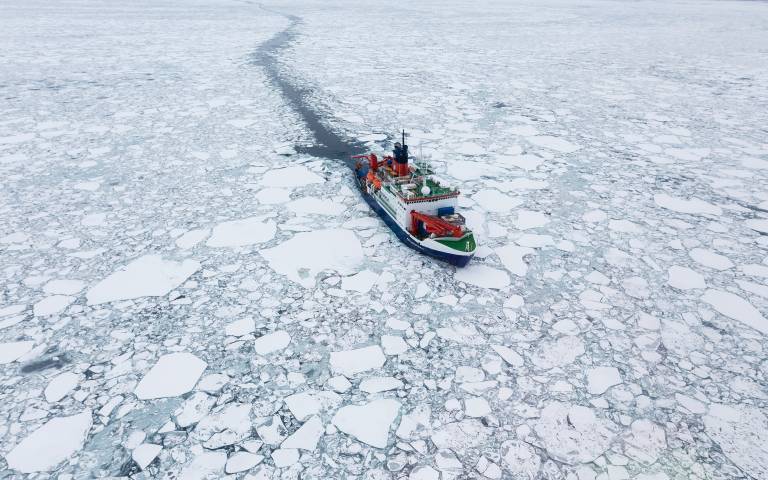EARTH SCIENCES
The rapid warming of the Arctic and its impact on the rise of global temperatures

The Arctic region is experiencing warming at an alarming rate, with temperatures rising almost four times faster than the global average. A recent study conducted by UCL researchers has revealed that this rapid warming in the Arctic will cause a global temperature increase of 2 degrees Celsius (2°C) to take place eight years earlier than it would if the region were warming at the average global rate. This has significant implications for the global climate targets outlined in the Paris Agreement. In this article, we will delve into the findings of the study, the concept of Arctic amplification, and the potential consequences of this phenomenon on both local and global scales.
Understanding Arctic Amplification
Arctic amplification refers to the disproportionate warming of the Arctic region compared to the rest of the planet. Several factors contribute to this phenomenon, including the retreat of sea ice and reduced vertical mixing of air in the poles. As sea ice diminishes, more sunlight is absorbed by the water instead of being reflected into space, leading to further warming. Additionally, the lack of vertical air mixing in the Arctic allows warmer air to remain near the Earth's surface. These factors combined create a feedback loop that amplifies the rate of warming in the region.
The Study's Methodology
The research team utilized an ensemble of 40 climate models to simulate different climate change scenarios. They modified the models to create an alternative world where rapid Arctic warming was not occurring. By comparing this hypothetical scenario with the "real-world" models, the researchers assessed the impact of Arctic amplification on the timing of breaching the critical temperature thresholds of 1.5°C and 2°C set out in the Paris Agreement.
The Arctic is warming faster than the rest of the planet, and this has far-reaching consequences for global temperature rise. According to a study conducted by UCL researchers, if the Arctic warming continues at its current pace, the thresholds of 1.5°C and 2°C will be breached earlier than previously projected. Specifically, the study found that the thresholds of 1.5°C and 2°C would be breached five and eight years earlier than the projected dates of 2031 and 2051 in the "real-world" models.
The disproportionate rate of Arctic warming introduces additional uncertainty to climate forecasts. The variation in model projections for the Arctic region is larger than for the rest of the planet, further complicating predictions. These findings emphasize the need for enhanced monitoring of temperatures in the Arctic and a better understanding of the processes driving Arctic amplification to improve global temperature rise forecasts.
It is crucial to acknowledge the local consequences of the accelerated temperature rise in the Arctic as well. A 2°C temperature rise globally would result in a 4°C annual mean rise in the Arctic, with even more extreme warming of 7°C in winter. These temperature increases have profound implications for local communities and ecosystems in the Arctic region.
The retreat of sea ice and the thawing of permafrost in the Arctic contribute to sea-level rise and the release of additional carbon into the atmosphere. These interconnected processes further exacerbate the climate crisis and necessitate urgent action.
The study highlights the need for extensive monitoring of Arctic temperatures through both in-situ methods and satellite observations. Accurate and comprehensive data collection in the region is crucial for refining climate models and improving forecasts of global temperature rise. Additionally, a deeper understanding of the underlying processes occurring in the Arctic will provide valuable insights for mitigating the impacts of Arctic amplification and addressing the associated environmental challenges.
Arctic climate change often receives less attention from policymakers due to the region's predominantly international nature. However, this study emphasizes how the Arctic significantly impacts global climate targets, such as those outlined in the Paris Agreement. The findings call for increased awareness and action regarding the ongoing crisis in the Arctic, highlighting the urgency of addressing this issue on a global scale.
In conclusion, the rapid warming of the Arctic has significant implications for global temperature rise. The accelerated Arctic warming will lead to a global temperature increase of 2°C occurring earlier than previously projected. Addressing the challenges posed by rapid Arctic warming is essential for achieving the climate targets outlined in the Paris Agreement and safeguarding both local communities and the global environment.

